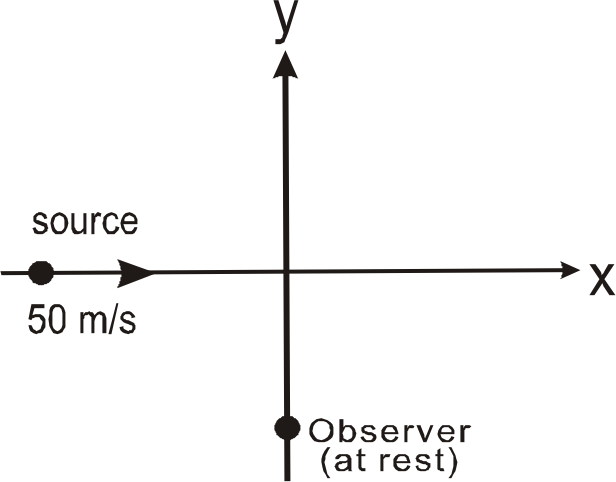For sound waves, the Doppler's formula for frequency shift differs slightly between the two situation :
(i) source at rest , observer moving (ii) source moving , observer at rest.
The exact Doppler formulae for the case of light waves in vacuum, are however, strictly identical for the two situations in case of light travelling in a medium ?
No
Sound waves can propagate only through a medium. The two given situations are not scientifically identical because the motion of an observer relative to a medium is different in the two situations. Hence, the Dopper formulas for the two situations cannot be the same.
In case of light waves, sound can travel in a vacuum, the above two cases are identical because the speed of ligth is independent of the motion of the abserver and the motion of the source. When light travels , the above two cases are not identical because the speed of light depends on the wavelength of the medium.
Topper's Solved these Questions
Similar Questions
Knowledge Check
If a source of light is moving away from a stationary observer, then the frequency of light wave appears to change because of
ADoppler's effectBInterferenceCDiffractionDNone of theseDoppler's effect is sound in addition of relative velocity between source and observer, also depends while source and abserver or both are moving. Doppler effect in light depend only on the relative velocity of source and observed. The reason of this is
AEinstein mass-energy relationBEinstein theory of relativityCPhotoelectric effectDnone of the aboveDopper's effect is sound in addition of relative velocity between source and observer, also depends while source and observer or both are moving. Doppler effecct in light depennd only on the relative velocity of source and observer. The reason of this is
AEinstein mass-energy relationBEinstein theory of relativityCPhotoelectric effectDnone of the above
Does the change in frequency due to Doppler effect depend on (i) distance between source and observer? (ii) the fact that source is moving towards observer or observer is moving towards the source?
View SolutionDopper's effect is sound in addition of relative velocity between source and observer, also depends while source and observer or both are moving. Doppler effecct in light depennd only on the relative velocity of source and observer. The reason of this is
View SolutionA sound source moving with speed 50 m/s along x-axis and observer at rest on y-axis.If the frequency observed by observer when source crosses the origin is 96 Hz, then the original frequency of source is :(speed of sound is given medium is 200 m/s)

View SolutionConsider the droppler effect in two cases. In the first case an observer moves towards a stationary sound-source, with a speed V1. In the second case, the observer is at rest, and the source moves towards the observer with the same speed V1. Then the frequency heard by the observer
View SolutionA sound source moving with speed 50 m/s along x-axis and observer at rest on y-axis.If the frequency observed by observer when source crosses the origin is 96 Hz, then the original frequency of source is :(speed of sound is given medium is 200 m/s)

View Solution
